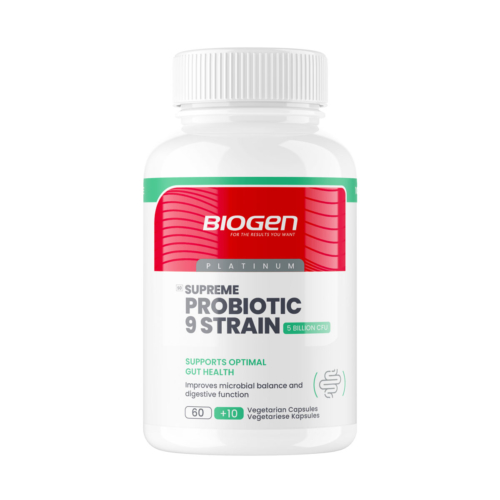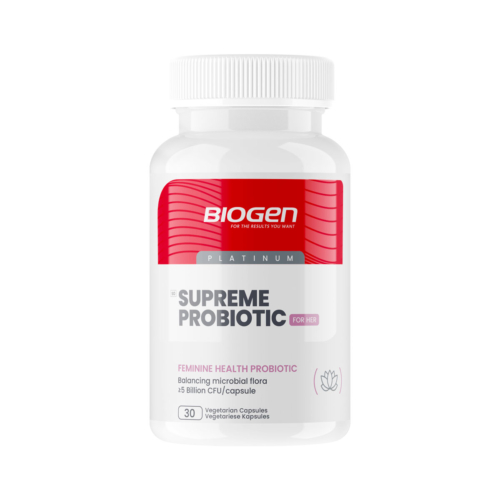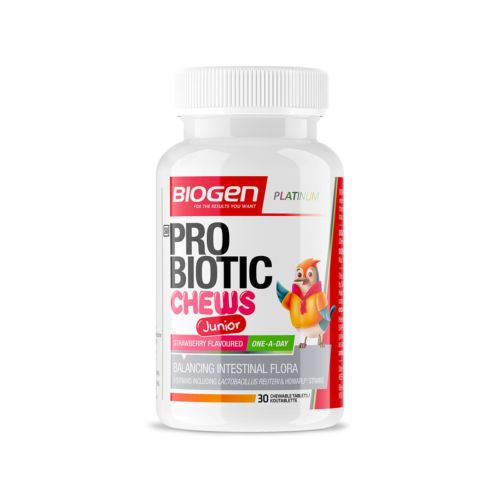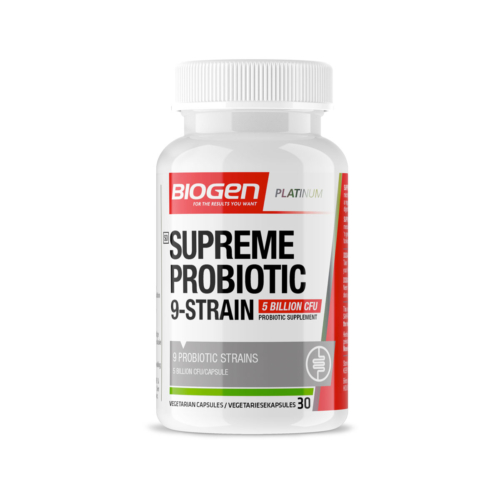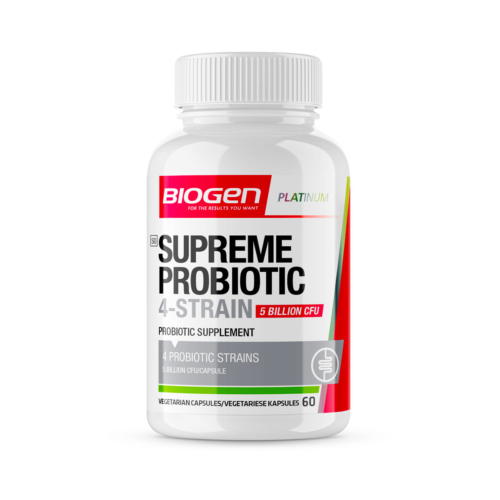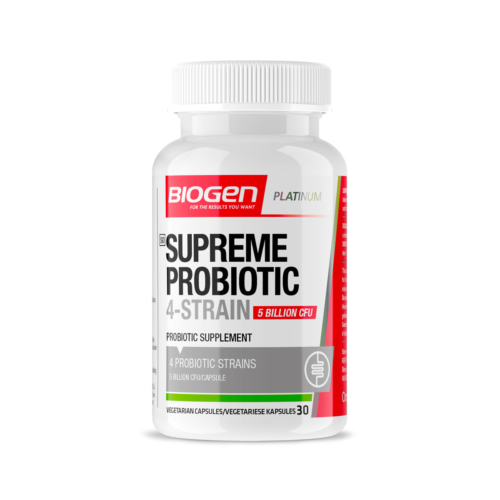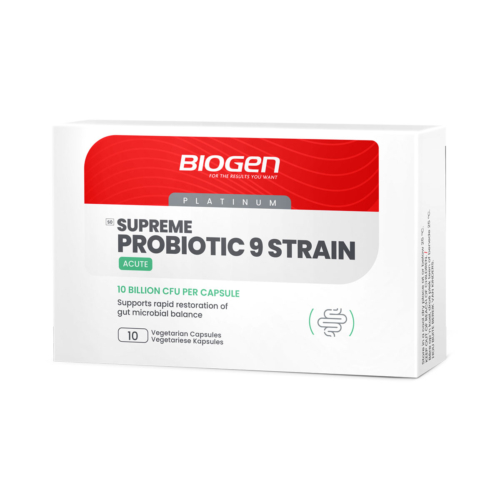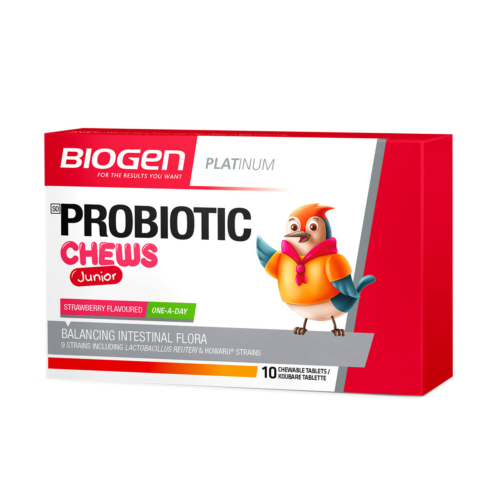
Unlocking the Gut-Immune Connection: How Probiotics Improve Immunity and Balance
As we continue to understand more about the intriguing and complex microbiome in your gut, research is shedding new light on the powerful connection between gut health and immunity—known as the gut-immune axis.
This vital relationship reveals that your gut isn’t just responsible for digestion; it’s also home to a large portion of your immune system, with probiotics playing a critical role in supporting immune function and defending against illness, which is vitally important during the winter cold and flu season.
Understanding the gut-immune axis is key to unlocking better health naturally. From physical barriers in the gut lining to the chemical signals that regulate immune responses, this intricate system is essential to how your body fights disease and maintains balance.
Discover how nurturing your gut with the right foods and probiotics could strengthen your immunity.
Making the connection
The gut-immune axis refers to the connection to the dynamic and complex relationship between the gut microbiome – the trillions of microorganisms living in your digestive tract – and your immune system.
Around 70–80% of your immune cells reside in the gut¹. This makes it the largest immune organ in the body. The gut acts as both a frontline defence system and a communication hub for immune responses.
The inner lining of the gut also serves as a physical and chemical barrier role in your immune defences, preventing harmful substances, like pathogens, toxins, and undigested food particles, from entering the bloodstream while specialised immune cells in this lining constantly monitor for threats.
Training the immune system
In addition, the trillions of microorganisms, which include beneficial bacteria, viruses, fungi, and other microbes, that live in a healthy and balanced gut – collectively known as the gut microbiota – train and modulate the immune system.
These common microorganisms also communicate with various immune cells (lymphocytes, macrophages, and dendritic cells) that live in the gut through chemical signals and cytokines to coordinate our body’s immune response, which is necessary to identify and eliminate pathogens, regulate inflammation, and promote tissue repair.
Our guts also contain gut-associated lymphoid tissue (GALT), a network of immune cells and tissues, including lymph nodes and specialised immune cells called lymphocytes. These components work together to detect and respond to pathogens, toxins, and foreign substances in the gut.
Backed by research
A 2019 study² affirmed the multiple roles that the probiotic bacteria that reside in our gut play in our overall immune response.
The research team sought to describe the immunological mechanisms of probiotics and their beneficial effects on human health.
After uncovering a host of beneficial effects on the immune system, the researchers concluded that probiotic bacteria “have significant effects on the functionality of the mucosal and systemic immune systems through the activation of multiple immune mechanisms”.
In this regard, the mucosal barrier that lines the intestinal wall is made up of specialised cells, including epithelial cells and mucus-producing cells, that create a protective barrier, preventing harmful substances and pathogens from entering the bloodstream.
Probiotics are also involved in the production of white blood cells and cytokines³, which are cell signalling molecules in the immune system that regulate our body’s immune response.
Some probiotic strains even strengthen the intestinal lining by repairing damage and tightening junctions between cells4, which creates a more robust physical barrier to stop pathogens from entering the gut
Bacteria and immune cell interactions
In another study⁵, a research team from Italy dived deeper into how probiotic bacteria and immune cells interact to improve immune functions, uncovering the mechanism of action and the beneficial effects on human health.
In the research paper, published in the journal Cells in January 2023, the researchers explain that “probiotic bacteria can interact and stimulate intestinal immune cells and commensal microflora to modulate specific immune functions and immune homeostasis”.
After reviewing the most recent scientific results and the resulting implications of how probiotic bacteria and immune cells interact to improve immune functions, the researchers concluded that: “Broad evidence indicates that intestinal immune cells interact with consumed probiotics, and this interaction can improve host immune homeostasis and immune function.”
The study also provided a more detailed analyses of how consumed probiotics specifically mediate the activation or modulation of both innate and adaptive immune responses in the intestine.
Ultimately, the researchers concluded that probiotics can “improve the host immune system and induce important beneficial effects, allowing the prevention and/or management of immune/inflammatory-related diseases, including IBD, IBS, inflammation, diarrhoea, pathogenic infections, infant colic, and certain cancer types”.
Gut-immune connection
Based on the available research, with new studies emerging, the connection between the gut and immune system is clear.
The best way to maintain a healthy gut and a balanced microbiome is through a wholesome diet that includes natural sources of probiotics, with support from probiotic supplements, and a lifestyle that supports overall health.
Lifestyle factors like stress and regular exercise also have a profound impact on your gut health and the balance of your microbiome.
Stress can disrupt the balance of gut bacteria (called dysbiosis), reducing the number of beneficial microbes and allowing harmful ones to thrive.
With regard to exercise, moderate, consistent physical activity has been shown to increase microbial diversity⁶, which is a key marker of a healthy gut.
Ideal sources of probiotics include:
- Yoghurt: Look for plain yoghurts that contain live or active cultures.
- Kefir: A drink made by fermenting milk with kefir grains, which are a combination of various strains of beneficial bacteria and yeasts.
- Sauerkraut: Cabbage that undergoes a natural fermentation process. It is rich in lactic acid bacteria. Opt for unpasteurised sauerkraut.
- Kimchi: A traditional Korean side dish made by fermenting cabbage and radishes that contains beneficial bacteria.
- Miso: A traditional Japanese seasoning made from fermented soybeans, rice, or barley that contains probiotic bacteria.
- Tempeh: An Indonesian fermented soybean product made using a fungus called Rhizopus oligosporus.
- Kombucha: A fermented tea beverage made by fermenting sweetened black or green tea with a symbiotic culture of bacteria and yeast (SCOBY).
Probiotic supplements
Probiotic supplements are a convenient way to populate your gut with a range of different combinations of bacteria and varying colony forming unit (CFU) counts to meet your individual gut health needs.
Numerous studies identify two specific strains that stand out for their impact on the immune system – Bifidobacterium and Lactobacillus. The human gut hosts about 30 species of Bifidobacteria and 52 species of Lactobacillus⁷.
Biogen Supreme Probiotic 4 & 9 Strain products contain both Lactobacillus and Bifidobacterium probiotic bacteria, making them ideal products to use to support your immune system throughout the year, or acutely during cold and flu season.
Biogen Supreme Probiotic for Her is another beneficial source of multiple Lactobacillus strains, which may improve and restore the microbial balance when ingested on a regular basis.
For the best results, it is vital to use probiotic supplements as part of a healthy lifestyle that includes a balanced diet rich in fruits, vegetables, and whole grains to provide prebiotic material to support probiotic colonies, along with regular exercise and sufficient quality sleep to support a strong immune system.
SHOP PROBIOTICS
References:
- Aguayo-Cerón KA, Sánchez-Muñoz F, Gutierrez-Rojas RA, Acevedo-Villavicencio LN, Flores-Zarate AV, Huang F, Giacoman-Martinez A, Villafaña S, Romero-Nava R. Glycine: The Smallest Anti-Inflammatory Micronutrient. Int J Mol Sci. 2023 Jul 8;24(14):11236. doi: 10.3390/ijms241411236. PMID: 37510995; PMCID: PMC10379184.
- Liu Y, et al. (2018). Fish collagen peptides modulate gut microbiota composition and alleviate colitis in mice. Food Funct. https://doi.org/10.1039/C8FO00218K.
- Zdzieblik D, Oesser S, Gollhofer A, König D. (2019). Collagen peptide supplementation in combination with resistance training improves body composition and increases muscle strength in elderly sarcopenic men: A randomized controlled trial. Nutrients. https://doi.org/10.3390/nu11020373.
- Bischof K, Stafilidis S, Bundschuh L, Oesser S, Baca A and König D (2023) Influence of specific collagen peptides and 12-week concurrent training on recovery-related biomechanical characteristics following exercise-induced muscle damage—A randomized controlled trial. Front. Nutr. 10:1266056. doi: 10.3389/fnut.2023.1266056.
- Inacio, P.A.Q.; Gomes, Y.S.M.; de Aguiar, A.J.N.; Lopes-Martins, P.S.L.; Aimbire, F.; Leonardo, P.S.; Sá Filho, A.S.; Lopes-Martins, R.A.B. The Effects of Collagen Peptides as a Dietary Supplement on Muscle Damage Recovery and Fatigue Responses: An Integrative Review. Nutrients 2024, 16, 3403. https://doi.org/10.3390/nu16193403.
- Clifford T, Ventress M, Allerton DM, Stansfield S, Tang JCY, Fraser WD, Vanhoecke B, Prawitt J, Stevenson E. The effects of collagen peptides on muscle damage, inflammation and bone turnover following exercise: a randomized, controlled trial. Amino Acids. 2019 Apr;51(4):691-704. doi: 10.1007/s00726-019-02706-5. Epub 2019 Feb 19. PMID: 30783776.
- Proksch E, et al. (2014). Oral supplementation of specific collagen peptides has beneficial effects on human skin physiology: a double-blind, placebo-controlled study. Skin Pharmacol Physiol. https://doi.org/10.1159/000355523.


